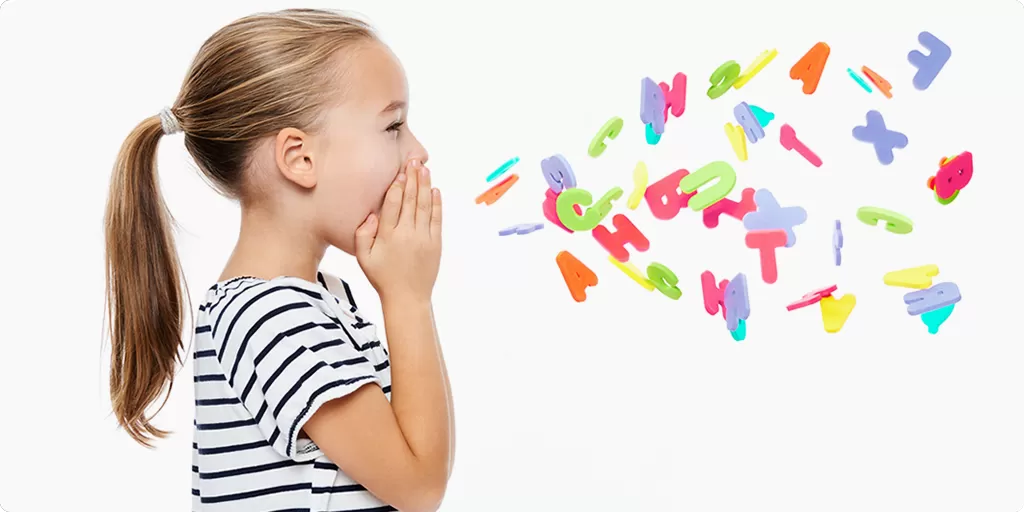Speech, language and communication are vital skills that are linked with many different areas including children and young people’s mental health. Reading Pals base their scripts on a language model, used in the training and practice of Speech and Language professionals, to stimulate and support children’s higher level language development. The vocabulary and concepts explored in the books, carefully structured reading comprehension scripts and meaningful discussion between the children, facilitate the development of higher order language skills that support good mental health.
‘What are the links between speech, language and communication and mental health?
- Mental health and communication skills are linked in different ways. Having good language skills means that children and young people are able to talk about how they are feeling. Children and young people need to have good language and communication skills to be able to understand and talk about emotions and to help them deal with different situations.
- If children struggle to express themselves they are likely to become frustrated. This can cause them to either act out or to withdraw and become socially isolated.
- We know that young children who have difficulties communicating are three times more likely to have behaviour that concerns parents and early years practitioners. We also know that some children and young people with mental health difficulties have some kind of communication problem; one study found that 40% of 7 to 14 year olds referred to child psychiatric services had a language difficulty that had never been suspected.
- Evidence tells us that children and young people from disadvantaged backgrounds are more at risk for both SLCN and mental health issues.
Many treatments for mental health issues rely on language and communication to work effectively, so this might be an issue for children and young people with SLCN.‘
The model used in the Reading Pals’ scripts ‘helps to support and further develop a child’s understanding of abstract language and verbal reasoning. It gives us a tool to be able to develop children’s language development in a structured and developmental way. It allows us to support children’s understanding at the right level or to challenge children at the appropriate level. This model moves from understanding and answering concrete questions to more abstract questions.’ The structure of the scripts facilitates reading comprehension and meaningful discussion for the Older and Younger Pals, allowing them to develop the higher order language skills that enable them to understand and process their emotions.

What supports children’s mental health and emotional wellbeing?
- Secure attachment experiences – developing good relationships and bonding with key people in their lives.
Reading Pals is a cross-age scheme which fosters supportive relationships between children, in a similar way to a healthy sibling relationship.
- Good communication skills – being able to understand what’s being said, express themselves and how they are feeling, get their message across and get on with other people.
The scheme helps facilitates the children’s communication skills by developing a wider vocabulary and understanding of concepts and facilitating stimulating discussions. The question scripts encourage the children to express their ideas and experiences in a supportive environment.
- Having a belief in control – feeling that they have a say in things and can make choices. They might be simple choices such as choosing what to eat, drink or do.
The children are the tutors and also the monitors who set up and ‘run’ the scheme with only light touch support from adults. This helps develop the sense of responsibility required to help others and the organisational skills needed to run the scheme, contributing to their self-confidence and belief in control.
- A positive attitude
The training given to the Pals emphasises the importance of being positive with their peers.
- Experience of success and achievement – everyone needs this whether the achievements are big or small. This helps develop our sense of self and self esteem.
Pals supports sense of success and achievement in two ways: the readers make progress in their reading and communication and the Older Pals understand that they are helping others to make progress. In some instances the Older Pal may be chosen because they lack in confidence in their reading, supporting the younger children helps them to focus on and feel proud of their abilities. The Younger Pals receive regular positive feedback on their reading progress and contribute to discussion.
- The ability to reflect – being able to look back on things, think about them and work out why something happened and if they might do or say something different in the future.
The question scripts include high order question forms. These questions require the children to predict and reflect on the concepts presented in the book, or in their own experiences. Asking and answering this level of questions is a key strength in the Pals scheme. Often children are not required to reflect or work out the answers to questions at this level in their daily life, this scheme gives them vital practice in these areas. Developing these skills allows the children to understand their own feelings, empathise and problem-solve.












